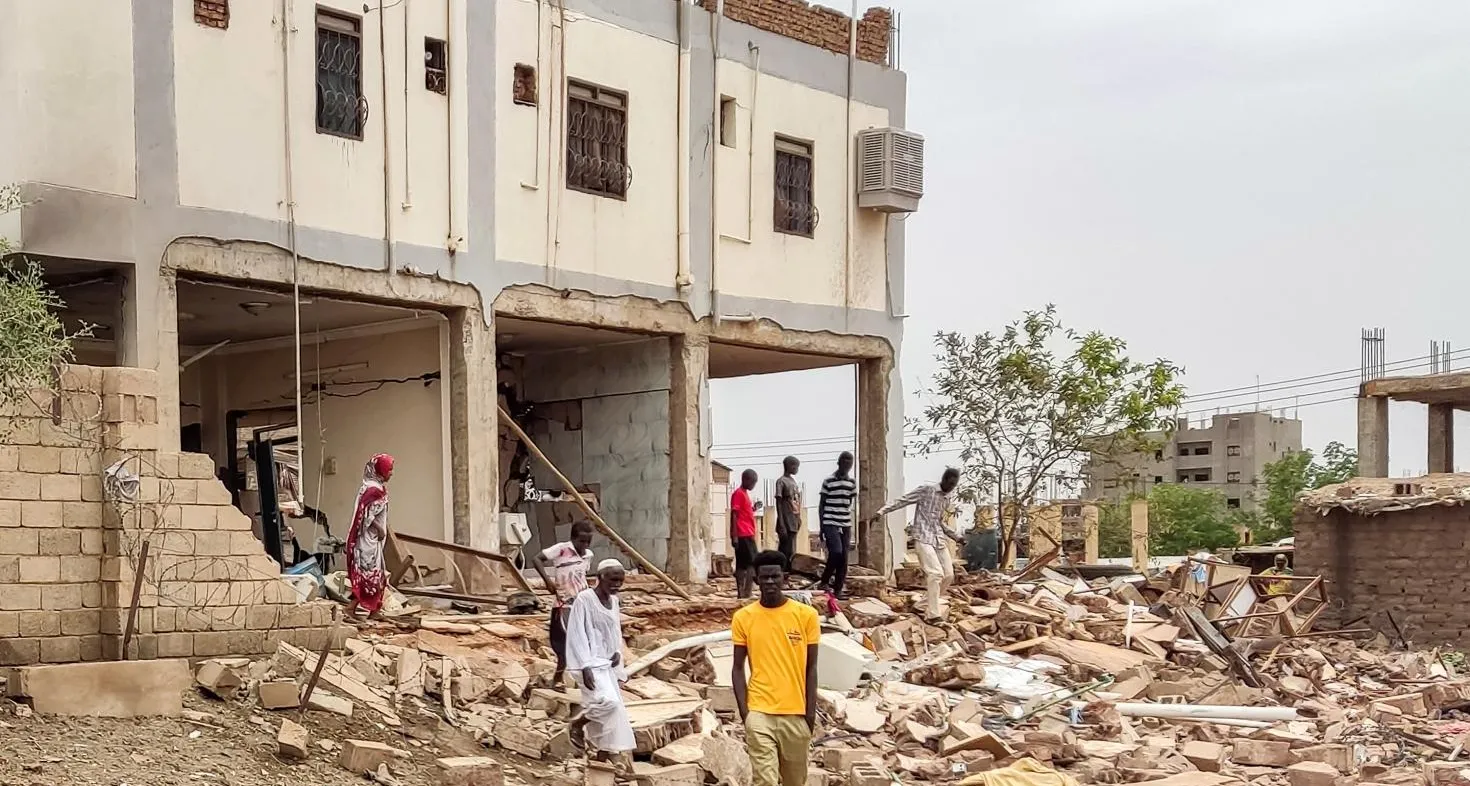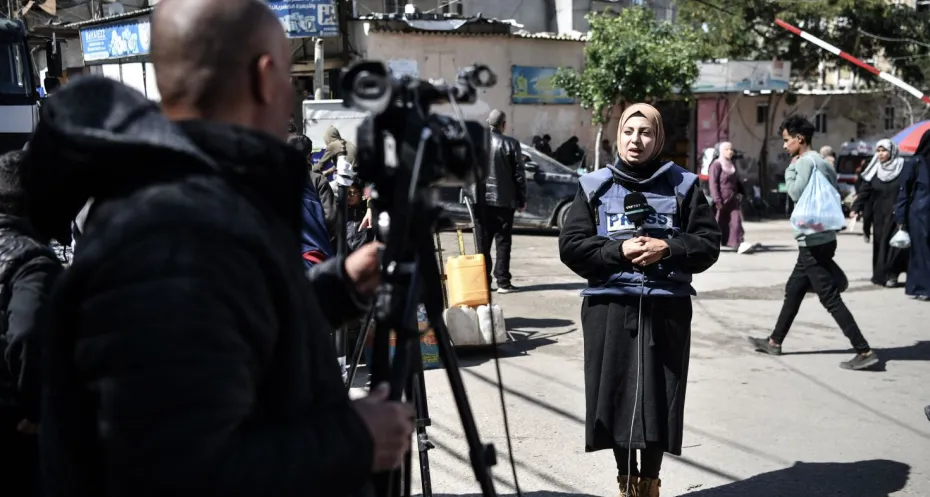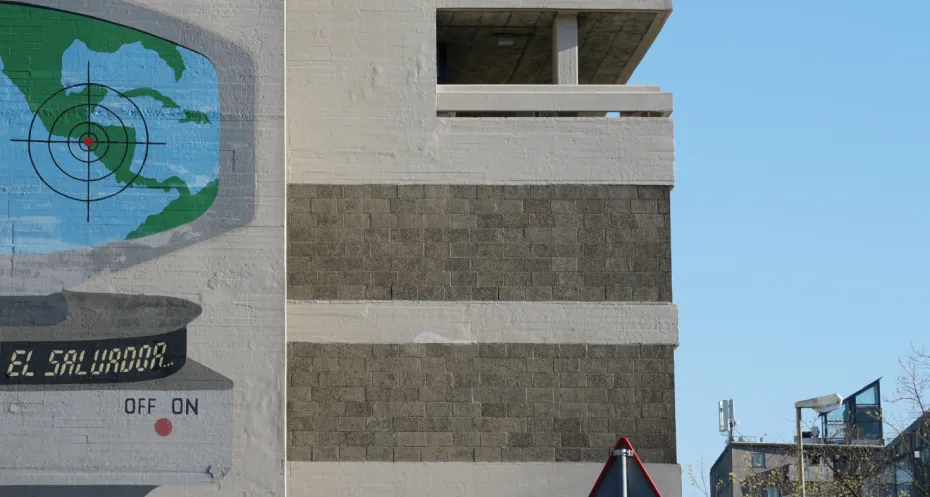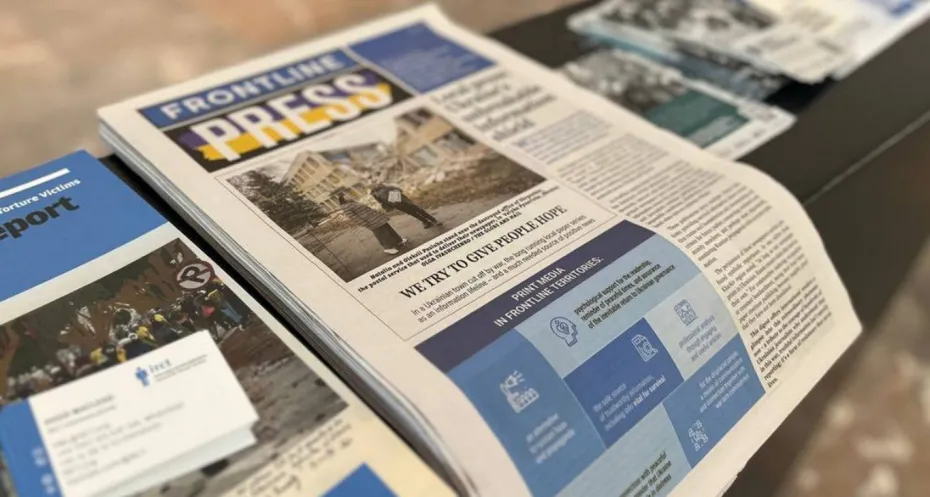
The Sudan war is also a crisis for the safety of journalists
The situation in Sudan is dire. The outbreak of the armed conflict between the Sudanese Armed Forces and the Rapid Support Forces on April 15 deepened the suffering of the Sudanese people. Journalists are no exception. The majority of the media in Sudan has stopped, while many media workers live in difficult conditions and face daily risks while searching for the truth in the midst of fighting. Radio Dabanga, operating in exile from Amsterdam, works hard to bring reliable information to the people in Sudan.
Ever since the (re)emergence of conflict, Radio Dabanga is reporting on grave mass killings, ethnic cleansing operations, war crimes against civilians, mass looting, and a total abandonment by all humanitarian assistance and the international community at the political level.
After the war in Darfur that lasted from 2003-2007, Free Press Unlimited supported Dabanga’s team of professional Sudanese journalists to work freely and safely from studios in Amsterdam. Since its inception in 2008, Radio Dabanga is one of the few, if not the only in light of recent events, independent news and information broadcasters in Sudan, providing lifesaving news and information to citizens.
Disinformation by both parties creates a lot of confusion and are attempts to divide the public and cause hesitation in the international community to intervene at the scale necessary. Access to reliable information is extremely important during conflict to keep parties accountable and know how and where to best give humanitarian support.
Impact on the media and access to information
Free Press Unlimited’s trusted partner the Sudanese Journalism Syndicate regularly provides updates about the situation for journalists and access to information in Sudan. They report that none of the regular media are working normally. You can find their regular updates here:
The reports show that at the moment there is no security to reach the scarce work spaces, in some cases media offices are looted and burned, with some raids aimed at Arab news channels specifically. Many journalists were forcibly detained at their offices in the first weeks of the conflict. This includes 13 journalists who were detained in the Al-Neelain Towers. They were evacuated on April 23, after spending nine days and nights in their offices in Khartoum in a dangerous area of hot combat, without food supplies.
Journalists under fire
There is a growing trend of targeted attacks against journalists. Acts of violence against journalists are looting of equipment, theft of money, raiding of offices equipment, threats made to journalists who report on incidents that involve the Rapid Support Forces especially.
Another concern are the defamation campaigns against journalists, like the emergence of anonymous lists that classify journalists as working for one of the conflict parties. This exposure puts the lives of those named journalists in direct danger; many have received threats of liquidation. A number of journalists, including members of the Sudanese Journalism Syndicate, received death threats through phone calls and messages through social media. It does not stop with threats, one journalist was shot at in his car while he was trying to evacuate his family to a safe place. Recently the first attempts at targeted killings have been noted.
Widespread looting and fighting
The war in Sudan between the Sudanese Armed Forces (the state army) and the Rapid Support Forces militia started in April 2023 after failed attempts to integrate the Rapid Support Forces into the Sudanese Armed Forces. This was one of the most important demands by Sudanese civil society after the Coup against the civilian government in October 2021.
The severe human rights and humanitarian situation in Sudan today show strong similarities with the situation in Darfur in 2003, except abuse and crimes are now happening all over Sudan. There are no police or army personnel of the Sudanese Armed Forces visible to protect citizens, guard the streets or the national institutions. According to eyewitness reports, most cars on the streets in Khartoum are carrying Rapid Support Forces militia men who search for new targets, harassing any civilians on the streets and stealing from them at temporary roadblocks. There is total anarchy.
Due to the destruction of telecommunications installations in the capital, and the occupation of the national RTV institutions, internet connectivity is minimal, allowing WhatsApp messaging only for a limited part of the day. This is problematic because WhatsApp is the main source of information for most people. There are also fake messages circling that attract people in search of food to spots where they are then violently attacked.
Support from Free Press Unlimited
The situation of press freedom, safety of journalists and access to information is more problematic than any time in the past in Sudan. Journalists are faced with wide-spread violence against them; are limited by the inability to (safely) gather information, lack access to reporting channels, have difficulty to find safe passage and refuge, and lack money for shelter in displacement areas. With the exception of Dabanga, none of the local media outlets are able to function normally at this moment.
Free Press Unlimited is working hard to improve the ability to work for journalists in Sudan by providing support to journalists in need. Our Reporters Respond emergency fund is available day and night for journalists in danger. We continue to support Radio Dabanga where necessary, and we work together with national and international actors to improve access to information and the safety of journalists. We are also looking for ways to re-establish local media outlets in Sudan to help them resume their work.
Call for support
More support is desperately needed. There is an astonishing lack of international involvement and outrage. We urge all international actors to do everything they can to put a halt to the armed conflict in Sudan and protect Sudanese journalists to ensure access to reliable information for the public. Civil society organisations, including Free Press Unlimited, remain unified in their demand for a return to a civilian government, to have the army reformed to the national institution it is supposed to be, and the militias to be dismantled.
To keep track of attacks against press freedom and journalists, incidents will continue to be listed and published by the Sudanese Journalism Syndicate regularly, keep an eye on this page for the latest updates.



